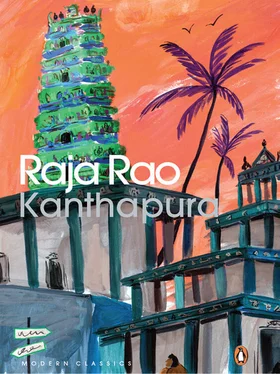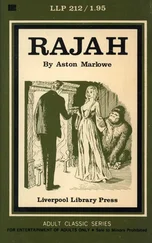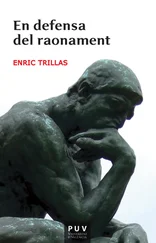‘You are the representative of the Government and I have a right to ask you to offer me a house.’
‘Representative of the Government,’ repeated the Patel. ‘Yes, I am. But the Government does not pay me to find houses for the police. I am here to collect revenue.’
‘So you are a traitor to your salt-givers!’
‘I am not a traitor. I am telling you what is the law!’
‘I didn’t know you were such a learned lawyer too,’ laughed Badè Khan. ‘But a final word. Will you oblige me by procuring me a house or not?’
‘No, police sahib. I tell you humbly I cannot. I am not the owner of the whole village. But if there is anyone who is ready to offer you a house, please take it and turn it into a palace. I can see no objection to that.’ He still munched his tobacco, and pasting the betel leaves with lime, he put them into his mouth and munched on.
‘You don’t know who you’re speaking to,’ Badè Khan grunted between his teeth as he rose.
‘I know I have the honour of speaking to a policeman,’ the Patel answered in a singsong way. Meanwhile his grandson, the little Puttu, came out, and he took the child in his arms and laid him on his lap and tickled him under the armpits to make him laugh. Badè Khan went down one step, two steps, three steps, and standing on the gutter-slab, growled at the Patel, ‘The first time I corner you, I shall squash you like a bug.’
‘Enough! Enough of that,’ answered the Patel indifferently. ‘You’d better take care not to warm your hands with other’s money. For that would take you straight to the pipal tree. ’
‘Oh, you—!’ spat Badè Khan, trying not to swear, and once he was by Sampanna’s courtyard he began to grumble and growl, and he marched on, thumping over the heavy boulders of the street. At the temple square he gave such a reeling kick to the one-eared cur that it went groaning through the Potters’ street, groaning and barking through the Potters’ street and the Pariah street, till all the dogs began to bark, and all the cocks began to crow, and a donkey somewhere raised a fine welcoming bray.
So Badè Khan went straight to the Skeffington Coffee Estate and he said, ‘Your Excellency, a house to live in?’ And Mr Skeffington turned to his butler and said, ‘Give him a hut,’ and the butler went to the maistris’ quarters and opened a tin shed and Badè Khan went in and looked at the plastered floor and the barred windows and the well near by, and he said, ‘This will do,’ and going this way and that, he chose a Pariah woman among the lonely ones, and she brought along her clay pots and her mats and her brooms, and he gave her a very warmful bed.
The next day, and the day after and the day after that, we saw nothing more of Badè Khan. Some said he went to bring the police inspector. Others said he was only a passing policeman who had come to squeeze money out of people. But on the fourth or fifth day, Postman Surappa went up the Front-house steps, and seating himself by grandfather Ramanna, asked for a pinch of snuff and told him, just in passing, that there was a policeman of some sort in the Skeffington Estate. And they all cried out and said: ‘Oh, Surappa, you had better tell those tales to whitewashed walls. Nobody who has eyes to see and ears to hear will believe in such a crow-and-sparrow story. It was a passing policeman. And he wanted to make money by terrorizing the ignorant. One has seen so many of these fellows. And once they have a rupee in their hand or a dozen coconuts or a measure of rice, they walk away and are never heard of again.’
But Waterfall Venkamma would have none of this. ‘Policemen do not come along like that in these civilized days,’ she mocked. ‘I know why they’ve come. They’ve come because of Moorthy and all this Gandhi affair. He with his kitchen she-friends and all this bragging city-talk!’ and she spat into the street. And, as everybody knew, she had no particular love for Moorthy. He had refused her second daughter, for whom bridegroom after bridegroom was being sought — and she was nearing the age. And then there was that other affair. Moorthy was so often at the ‘next-house-woman’s kitchen,’ as she used to say. Since that Sankara-jayanthi Moorthy was always to be seen going up the Kannayya-house steps and then he would come out sometimes in one hour, sometimes in two hours, and sometimes in three hours, and he even took others of his gang with him too. They said Rangamma’s house was now becoming something of a Congress House, and there they were always piling books and books, and they had even brought spinning wheels from the city. The expulsion of Jayaramachar from Kanthapura had made a big noise in the city, and the Karwar Congress Committee had written to Moorthy to go and see them. And when he had gone to see them, they had given him books and papers and spinning wheels, and all this for nothing, it was said! And that was why our boys were so busy now. They went to the Sudra quarters and the Potters’ quarters and the Weavers’ quarters and they cried, ‘Free spinning wheels in the name of the Mahatma!’ And it was Moorthy who came to the Brahmin street. ‘Sister,’ says he to Nose-scratching Nanjamma, ‘sister, the Congress is giving away free spinning wheels. Will you spin, sister? You see, you have nothing to do in the afternoons after the vessels are washed and the water drawn, and if you spin just one hour a day, you can have a bodice-cloth of any colour or breadth you like, one bodice-cloth per month, and a sari every six months. And, during the first month, the cotton is given free.’
‘May I ask one thing, Moorthy? How much has one to pay?’
‘Nothing, sister. I tell you the Congress gives it free.’
‘And why should the Congress give it free?’
‘Because millions and millions of yards of foreign cloth come to this country, and everything foreign makes us poor and pollutes us. To wear cloth spun and woven with your own God-given hands is sacred, says the Mahatma. And it gives work to the workless, and work to the lazy. And if you don’t need the cloth, sister — well, you can say, “Give it away to the poor,” and we will give it to the poor. Our country is being bled to death by foreigners. We have to protect our Mother.’
Nanjamma does not know what all this is about. Brahmins do not spin, do they? ‘My son, we have weavers in the village. There is Chennayya and Rangayya. ’
‘Yes, sister. But they buy foreign yarn, and foreign yarn is bought with our money, and all this money goes across the oceans. Our gold should be in our country. And our cotton should be in our country. Imagine, sister,’ says he, seating himself, ‘you grow rice in the fields. Then you have mill agents that come from Sholapur and Bombay and offer you very tempting rates. They pay you nineteen rupees a khanda of paddy instead of eighteen rupees eight annas, as Gold-bangle Somanna or Mota Madanna would pay. They will even pay you nineteen rupees and two annas, if you will sell more than twenty khandas. Then they take it away and put it into huge mills brought from their own country and run by their own men — and when the rice is husked and washed and is nothing but pulp, they sell it to Banya Ramanlal or Chotalal, who send it by train to Banya Bapanlal and Motilal, and Bapanlal and Motilal send it to the Tippur Fair, and Subba Chetty and Rama Chetty will cart twenty sacks of it home. And then you have no rice before harvest, and there’s your granddaughter’s marriage, for example, or your second daughter is pregnant and the whole village is to be invited for the seventh-month ceremony. You go to Subba Chetty and say, “Hè Chetty, have you fine rice?”—”Why, I have fine white rice,” says he, and shows you rice white and small as pearls, all husked and washed in the city. And you say, “This looks like beautiful rice,” and you pay one rupee for every three and a half seers. Now tell me, Nanjamma, how much does Husking-Rangi ask from you for every twenty measures of paddy?’
Читать дальше












